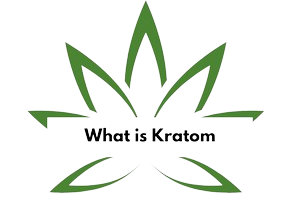Is Kratom Legal in Florida? Current Laws and Regulations
Kratom, derived from the leaves of the Mitragyna speciosa tree native to Southeast Asia, has become a popular botanical in many parts of the United States due to its potential for pain relief, anxiety management, and mood enhancement. However, the legal status of kratom varies across different states and cities. The legality of kratom in Florida has been a highly debated subject reflecting wider national discourse on the regulation of herbal substances.
Legal Status of Kratom in Florida
Currently, kratom is legal in Florida except in Sarasota County. Health concerns have led Sarasota County to pass a local law against this herb since 2014. Nonetheless, it remains legally accessible throughout Florida to adults aged 18 years and above.
Nonetheless, efforts have been made at statewide bans for kratom, but none have succeeded yet. For example, between 2016-2017, there were proposals to categorize mitragynine and 7-hydroxymitragynine as controlled substances at the state level, which were met with fierce opposition from both those who support making it illegal and legislators leading to these legislation being dormant.
Regulations and Controls
Despite being totally legal in large parts of Florida, it still needs to be regulated. Dietary vendors are required by general rules governing the sale of dietary products that they sell truthful dietary supplements, including proper labels, as well as other misleading marketing practices like false health claims. Furthermore, many reputable manufacturers have voluntarily taken measures in this direction, i.e., ensuring their products are tested for purity & potency, thus instilling confidence among their customers when purchasing such kratom.
Community and Advocacy
Florida’s kratom community is vibrant, with multiple advocacy groups aiming to educate the public on its benefits while lobbying politicians about its importance in responsible regulation. Such organizations include the American Kratom Association (AKA), whose main aim is to push for the enactment of the Kratom Consumer Protection Act (KCPA), which will establish quality standards for kratom products, thereby making them legal.
Legal Challenges and Future Outlook
As new research unfolds and public opinion changes, so can the legal situation of kratom in Florida. In defense of kratom, proponents argue that banning it would have far-reaching consequences on the lives of thousands of Floridians who depend on the herb for various medicinal purposes. They also stress the need for regulation to deal with adulteration as well as unscrupulous marketing activities happening within this sector.
On the other hand, some organizations and individuals are demanding bans across their state or stricter regulations, arguing safety concerns and abuse potential. In contrast, others claim the FDA has not approved these drugs. These concerns often originate from reports suggesting negative effects associated with kratom; however, its supporters contend that such side effects are a result of misuse or contamination of kratom products.
Navigating Kratom Use in Florida
For those living in Florida or visiting the state, being aware of current laws & any developments about kratom’s legality is vital. When using kratom powder it is best to purchase only tested-products by vendors who share information about their goods such as third party test results hence demonstrating product purity & compliance with local regulations.
Conclusion
The issue of whether or not kratom is legal in Florida can be described as one which can be answered affirmatively to some extent since it is against the law only in Sarasota County. The ongoing argument about kratom’s legality mirrors wider concerns related to assessing the trade-off between personal autonomy and public health. In view of this, both its users and prospective users should remain updated on any new information and guidelines that are meant to address genuine well-being issues while acknowledging the possible merits of kratom use.

